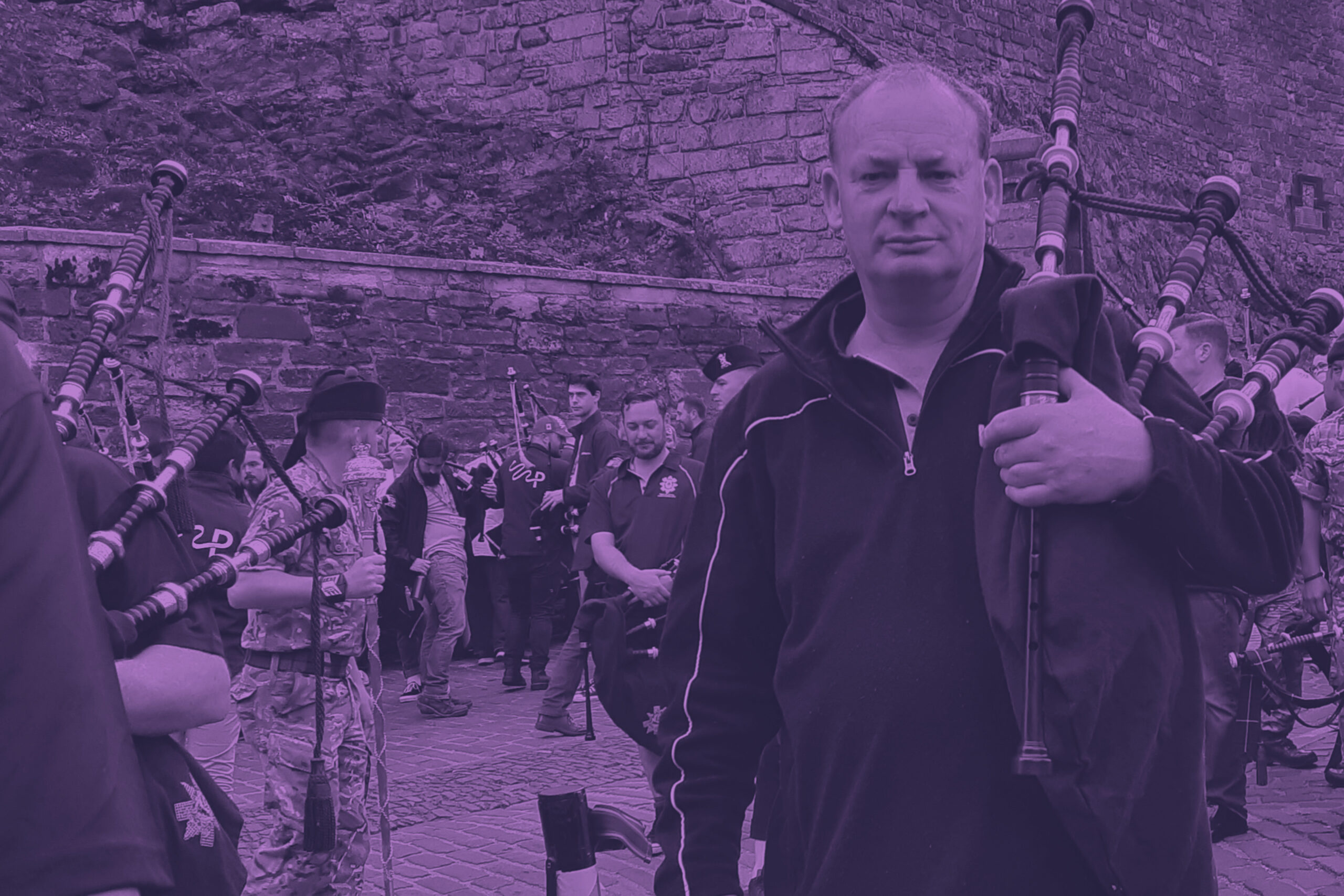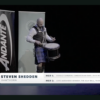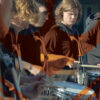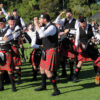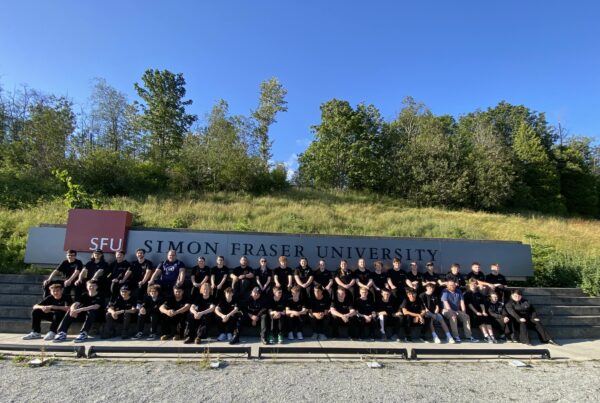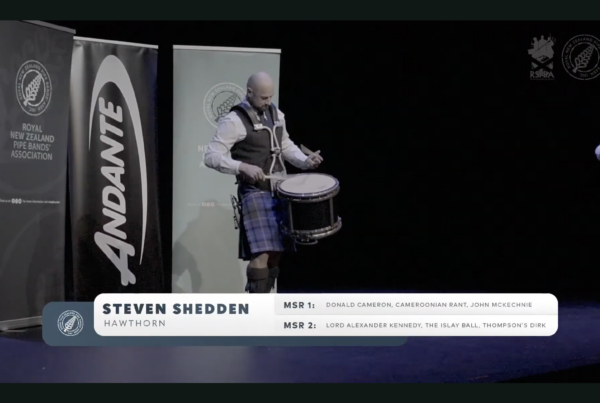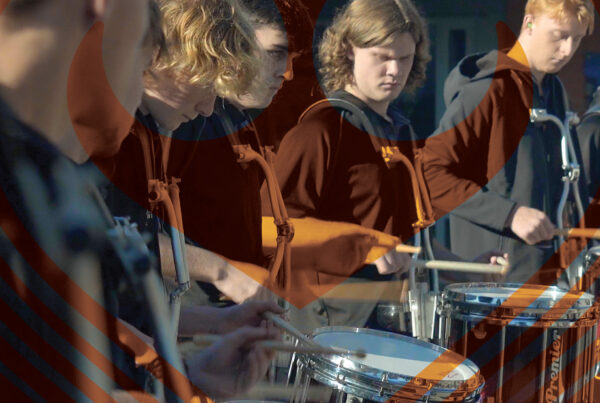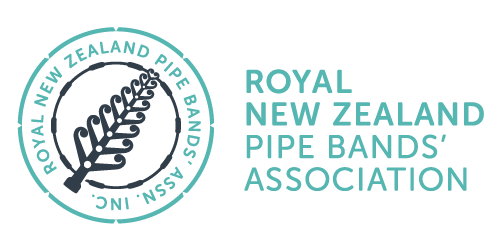Graeme Rusbatch.
Around mid 2021 I had the pleasure of attending the AGM of McAlpines North Canterbury Pipe Band, based in the township of Rangiora – just a few kms north of Christchurch. At this AGM,
Pipe Major Graeme Rusbatch presented his report in absentia. It was his 38th.
I had a thought and posted on Facebook – lets find the longest serving band officer in NZ. From the responses, the August magazine presented the story of the long serving members of the formerly affiliated City of Gisborne Pipe Band. Some of the responses mentioned Graeme Rusbatch as a likely contender, so it looked like there was a story to be told here.
Back in 2003, NZPB ran an article that had appeared in the local newspaper (Northern Outlook) on the long service of Graham T Rusbatch (Snr), aka Rusty, to the North Canterbury band. Yes, we know there are many long serving members, but in this case, we wanted to look at the Rusbatch lineage and legacy, the band, and the inextricable link between them.
We’ll start with a reflection on the Rusty era, and of course of Graeme’s mother Margaret, and as we wander through the band and music achievements of siblings, as well as the relationship between the band and community, you’ll see why this story had to be written.
Rusty began to learn the pipes in 1949 and became a member of the North Canterbury Pipe Band in 1951, although one of his first parades was the Canterbury Centennial held in 1950.
By 1962 Rusty was pipe major of the band and two years later, in 1964, the band won the C Grade Championship at the National Contest in Dunedin, earning promotion to B Grade. Rusty had a few years away from the PM role while Robert Forrester stood up to the plate for a couple of years, then Stuart Cheyne took the reins until 1981, but Rusty reclaimed the role until 1987. During Stuart’s time, the band sought sponsorship from McAlpines Timber – a local milling and timber processing operation, and the name was changed to McAlpines North Canterbury Pipe Band. The relationship still exists, some 45 years on. Graeme (Jnr), the subject of this interview, then assumed the position of pipe major, and this is where our story starts.
Graeme considers himself to have been a late starter on the pipes. “I learned piano from about eight years old, mostly classical, until I was about 16, with a bit of modern thrown in at the end to learn chords” Graeme explains. And how did his piping start? “I didn’t start the pipes until I was about 12. I found dad’s practice chanter and went to him asking what this tune was called, playing The Rowan Tree. I’d heard it at a contest or band parade somewhere I guess”. His piano years taught him many skills that were transferable to the pipes, but the big benefit was the ability to sight read. “I can sight read like reading a book. My piano teacher said I could probably play the music backwards, so one day I did, which earned a clip around the ear!”
Graeme’s siblings had various musical talents also. His brother Brian was not a fan of the pipes, but played piano and brass, and earned a position at national youth brass band standard. His sister Elizabeth, a tenor drummer in the band from 1983 to 1989, and later in the Canterbury Caledonian Society Grade 1 band, was also an accomplished trombone player, and highland and traditional Irish dancer. Roger Rusbatch joined the band as a side drummer in 1976 and also played in the Canterbury Cale. Margaret, Graeme’s mother, was another late comer to piping, not taking up the instrument until she was 20. She met Rusty at a contest in Westport while playing for the City of Christchurch Ladies, which ultimately became the “Cale Ladies”, where she stayed until 1977 “because women weren’t permitted in the North Canterbury Pipe Band before then” Graeme explains.
Despite the family involvement, and although Rusty and Margaret had started him off, much of Graeme’s early piping teachers came from elsewhere. “Mum and Lorna Burney were good friends and they convinced Neville Burney (Canterbury Caledonian) to teach me, so every Tuesday night I used to go into town for the Neville Burney Experience (laughs).” Graeme continues, “He taught me for a couple or perhaps three years, then the Cale band was looking to go to Australia to compete and Neville suggested I should join the band to be part of the tour. At that time I was into hockey and doing quite well, so when Neville asked me to make up my mind and do one or the other, I did the ‘other’. Neville wasn’t very happy with that decision. I’d been involved in Rep hockey teams at high school and always enjoyed sport, so it was an easy decision to make really.” When reflecting upon that time, Graeme credits Neville with how he later progressed, acknowledging that Neville always insisted on the basics of piping being presented well – “and look at the pipers that Neville produced over the years.”
Graeme’s first foray into solo piping was Dunedin 1975. Rusty had tried to get Graeme to lessons with Frank Annan, who at the time had a butchery in Rangiora, but for a number of reasons, ended up taking lessons from Alastair Munro for about three years. In terms of the band, “Stuart Cheyne was pipe major so I took lessons from him. Stuart was a really good piper and teacher”.
Graeme joined the North Canterbury Pipe Band in 1975 and attended his first contest with that band in Wellington 1976. He was working for Canterbury Timber Products, a large timber processing and particle board manufacturer on the outskirts of Rangiora, but was also a member of the New Zealand Defence Force Army Territorial Forces, along with fellow Cantabrian and piper Philip Lundy. “We played regularly with the NZ Army Band in concerts all over the country, with Major Jim Carson at the helm” says Graeme. He was in the “Terries” for about 5 years. ”At one stage we were chucked some music and told – ‘you’ve got three days to learn this’, then we went on tour – two concerts a day for 10 days”.
Wellington 1976 was the first time the band had competed at a North Island contest, choosing for a variety of reasons to attend South Island contests only up until this time, and the band’s next North Island contest was 1994 in Tauranga, “and the band has been to every National Contest since. I’m not sure how Auckland will look for us this year with a shortage of members in the drum corps, but anyway – we’ll see what happens”. Graeme reflects upon the most recent Auckland contest. “A highlight of our North Island contests was Papakura 2008. This was the first year the Grade (4) was split into A and B and we won the inaugural Grade 4B Championship. It absolutely bucketed down while we were on the board. It always rains when we compete”. I had to take the opportunity here to remind Graeme of Tauranga 1994 contest, as a few of us stood around the circle in Inverness Capes and under brollies. “We came on and the rain started, and when we finished the rain stopped. It was so wet, even the judges left the grounds!” Our discussion also included the 1999 contest in Dunedin, when the band finished the top Grade 4 band in the South Island. Graeme was a bit blurry on the detail, but I reminded him I saw his fellow band members at one point, carrying him down George Street. “Oh really?”. He continues – “Yes we did have some golden years around that time. We were lucky to have Kate Allen with us, and John Dingwall teaching. It was a time when the band was in sync”.
Despite being a loyal North Canterbury lad, Graeme has been involved in other bands. He played with Canterbury Caledonian Society PB in 1984 at the Auckland contest. “That was the year MacLeay Duff Distillery PB played ‘Send in the Clowns’ in their Display, with clowns running on to the grounds to join them,….. that upset the hierarchy”. “I played with the Cale for a few years, under three pipe majors – Neville Burney, Richard Hawke and Chris Stevens”. Graeme also played with the Cale band in the 1988 five week tour to North America, continuing on to Scotland after the tour, for another six weeks. His travelling companions included Barry Shaw and Fred Bonniface. In 1996, The Christchurch Metropolitan PB approached Graeme to play with the band at the Australian PB Championships in Melbourne, and he played with the band at the Nationals in Invercargill the following year, as his own band didn’t attend.
“In 2006, our band decided to go to Australia, so we headed to the McLean Highland Gathering in 2008. It’s a town where every power pole is painted as a tartan. We went back there two years later. These were fantastic trips, and the band did really well over there”.
In 2018, he travelled to Shanghai China with the Celtic Pipe Band. “It was a week of torture [laughing]. We got off the plane, not a bus, then straight to practice, then a midnight practice. It was so hot!. It was horrendous hours!”. Celtic P/M Callum Gilchrist asked Graeme if he would play with them at the Worlds. He thought this “sounded like a plan”, and as the P&D of Christchurch City was to play at the Edinburgh Tattoo, receiving an invitation to play with them also, Graeme thought – “why not?”, so played for both! “I played the first week at Edinburgh, which was mostly practice, and did a couple of shows. Then I went with Celtic to North Berwick where we won Grade 4B, then the Worlds the following week. No rest though – the next day I was back at the Tattoo for a week, and after the last day, flew back home”. But this was not the end. “Six weeks later, we went to Sydney to perform at the Tattoo at ANZ Stadium”.
Its worth noting that whilst Graeme was in Scotland, his mother Margaret passed away. On the day of the funeral, Graeme piped Margaret into the Church – streamed live from Glasgow.
Graham considers now though that although competition is good, and the band is committed to continuing down this path, there are other, and more important factors involved. I asked the question – what is the motivation? Is it just turning up for practice and parades? Is it the desire to compete?
“Its a bit of both really. The desire to compete is certainly there. We’ve got a few members that aren’t quite at the level required yet, but with what’s happened over the last 18 months we’ve been working on the parade tunes that will get them out on the street”. Competition is important for the band. I suggested to Graeme that competition is about the standard that IS set, not the standard they necessarily achieve. “The winning band in a grade sets the standard, so to win, that’s what we have to achieve. We were that at some stage, but other bands have moved on from that and we’ve sort of stayed where we are”.
When asked where his personal motivation comes from, the answer revealed a very mixed bag. He has recordings and tapes dating back decades, including live performances by greats such as Bill Boyle, Allan Dodd, Frank McKinnon, Alastair Munro, Scott MacAuley from Prince Edward Island Nova Scotia, the formerly known Vale of Athol Pipe Band under P/M Iain Duncan. “You learn off the people you’ve been with. You pick up things along the way. I think if you take everything onboard, there’ll be some things you can’t use, but there’ll be plenty you can”. We chatted for quite a while about Graeme’s interaction with many pipers of significance, in band and solo contexts. It was evident that Graeme has rubbed shoulders with some of the very best.
Time to look forward and to ask where Graeme sees the band ten years from now. “We’re a small town community band so I expect we’ll be doing things similar to now. It would be nice to travel overseas again, but in the current environment, who knows if that will happen again. We are currently in a rebuild phase, so will continue to teach and develop our younger players, with a view to building a stronger band”
At 38 years in the role, and looking forward to the next 10 years, he’ll be close to 50 years as pipe major. Any thought of succession? “I always think about that. I’ve had one or two lined up over the years – some have passed and moved to other bands, and another prospect has taken up other activities. Gone are the days where you could expect people to stay with the band and have it remain their only focus. If they follow other pursuits, you have to accommodate. If you insist on commitment, you’ll lose them”. He does still have a couple of options, but they’ll potentially not be ready for a while.
As we came to the end of the interview, Graeme reflected on some of the highlights of his piping career. He considers the 2020 national contest in Invercargill to be “one of the best I’ve been to”, but also rates the Christchurch contest run by Jim Fraser, and the Tauranga contest. Then there were the days around the solo competitions. He reflected with fondness the Labour Weekend competitions in Christchurch that would conclude with an all night after-match function, then off to patron Peter Stevens’ house for breakfast, and even a swim. There’ll be many readers who recall those days. He also remembers the days when his father Rusty was pipe major of the band, and the New Years Eve “pub crawls” raising money, and the trips back from various North Canterbury A&P shows, stopping in at every hotel on the way home to play a tune and rattle the collection boxes. “That sort of thing really doesn’t happen anymore”. But these types of activities is what keeps the band front and centre of the community. He made an interesting observation – “people out here even ask if there are pipe bands in Christchurch, because they’re not always visible, whereas we try to always be visible. That’s why we get so much support from the community”.
Even though I’ve known Graeme for over half a century, it was great to catch up in this manner, and to document some of the stories of him personally, and of the band. We should diary another interview for August 2033, so he can then reflect upon what will quite possibly be 50 years in the role.
Congratulations Graeme, for outstanding service to the band, and the North Canterbury community.
